Bill Snyder
-

Researchers study unique couples intervention in Mozambique to reduce HIV transmission
Researchers in the Vanderbilt Institute for Global Health are testing whether a unique “couples-centered” intervention developed in the southern African nation of Mozambique can reduce mother-to-child transmission of HIV. Read MoreAug 3, 2017
-

Investigators use light to kill microbial ‘vampires’
On July 24 Vanderbilt scientist Eric Skaar, Ph.D., MPH, summarized his group’s latest paper in a tweet: “If S. aureus is going to drink our blood like a vampire, let's kill it with sunlight.” Read MoreJul 27, 2017
-

Doris Duke Foundation lauds Van Driest’s research
Sara Van Driest, M.D., Ph.D., who is developing methods for precision dosing of pediatric medications at Vanderbilt University Medical Center (VUMC), has received a 2017 Clinical Scientist Development Award from the Doris Duke Charitable Foundation. Read MoreJul 27, 2017
-
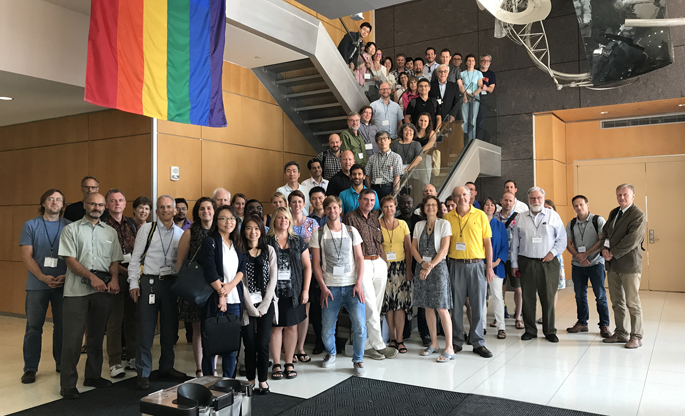
Workshop draws basement membrane experts from across globe
A workshop on the basement membrane hosted earlier this month by Vanderbilt University Medical Center attracted 75 top scientists from around the world and broke new ground in understanding molecules that make up this key biological structure. Read MoreJul 27, 2017
-

Vanderbilt mourns loss of pharmacologist H. Alex Brown
H. Alex Brown, Ph.D., the Bixler-Johnson-Mayes Professor in the Department of Pharmacology at Vanderbilt University School of Medicine, died from cancer Tuesday, July 25, at his home. He was 56. Read MoreJul 26, 2017
-
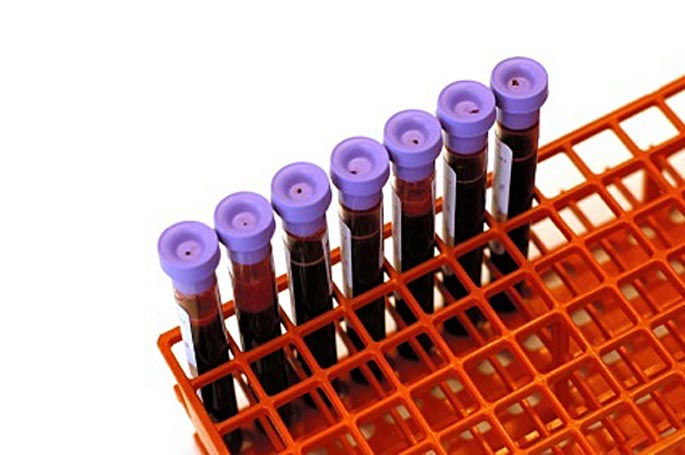
How Epo action is ‘enhanced’
The hormone erythropoietin (Epo) controls red blood cell production and synthetic forms of Epo treat multiple disorders. New Vanderbilt research details how Epo works. Read MoreJul 24, 2017
-

Study identifies protein’s role in chemotherapy resistance
Researchers at Vanderbilt University Medical Center (VUMC) have discovered a protein that may lead to a new way to prevent resistance and improve outcomes for patients whose cancers have mutations in the tumor suppressor gene BRCA2. Read MoreJul 20, 2017
-
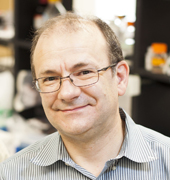
Immune responses linked to cell’s recycling system
Autophagy is the cellular equivalent of trash pickup and recycling — it is a process by which proteins, protein aggregates and damaged cellular organelles are degraded in order to reuse nutrients and promote cellular metabolism. Read MoreJul 20, 2017
-
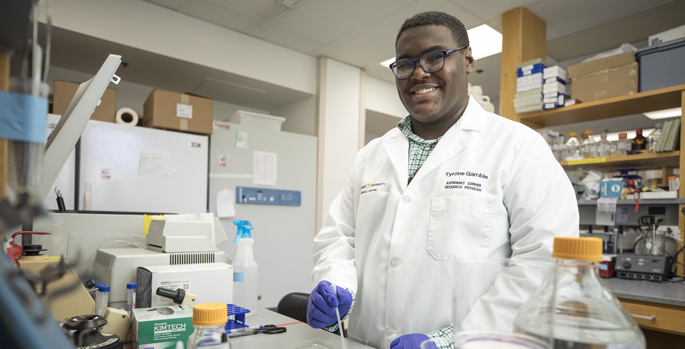
Aspirnaut program helps launch students into science
Now in its ninth year, a unique summer research program at Vanderbilt University Medical Center (VUMC) designed primarily for rural students with limited resources is proving that talent has no zip code. Read MoreJul 20, 2017
-
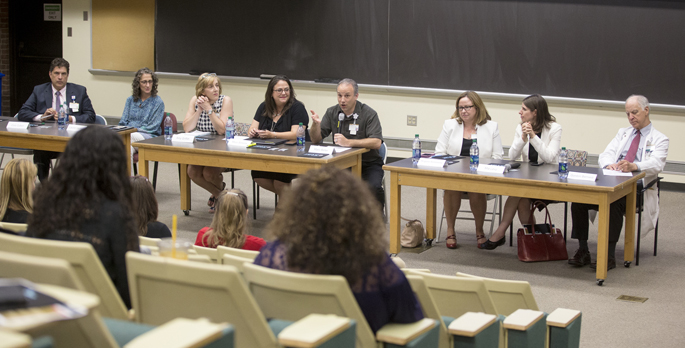
eSmart portal set to bolster clinical research enterprise
About 250 research staff members attended an EpicLeap for Research Town Hall on Monday to learn what they must do to prepare for the Nov. 2 launch of eStar, Vanderbilt University Medical Center’s version of the Epic clinical, administrative and billing software system. Read MoreJul 20, 2017
-

Lindsell named to key VICTR, IMPH and Biostatistics leadership roles
Christopher Lindsell, Ph.D., nationally known for building clinical, translational and emergency medicine research programs at the University of Cincinnati, has been named director of the Research Methods Program in the Vanderbilt Institute of Clinical and Translational Research (VICTR). Read MoreJul 13, 2017
-

New institute to focus on immune system
Vanderbilt University Medical Center (VUMC) is launching a new institute to coordinate initiatives among the rapidly evolving disciplines of infection biology, immunology and inflammatory diseases. Read MoreJun 29, 2017
-

VU scientists report a way to calm the sepsis “storm”
Researchers at Vanderbilt University Medical Center (VUMC) have found a way to calm the “genomic storm” that triggers the often-lethal consequences of sepsis. Read MoreJun 22, 2017
-

VUMC team’s discovery could lead to new diabetes treatment
High circulating glucose, the hallmark of diabetes, is linked to the disease’s most serious complications including heart disease, kidney failure, blindness and amputation. Diabetes is the sixth leading cause of death and costs the nation an estimated $322 billion a year. Restoring the action of insulin has been the traditional… Read MoreJun 15, 2017
-
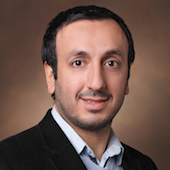
Unal receives Orthopedic Research Society award
Mustafa Unal, Ph.D., a postdoctoral research fellow at Vanderbilt University School of Medicine, has been selected by the Orthopedic Research Society to receive its 2017 Alice L. Jee Young Investigator Award for work that potentially will improve the clinical assessment of bone strength and quality. Read MoreJun 15, 2017
-
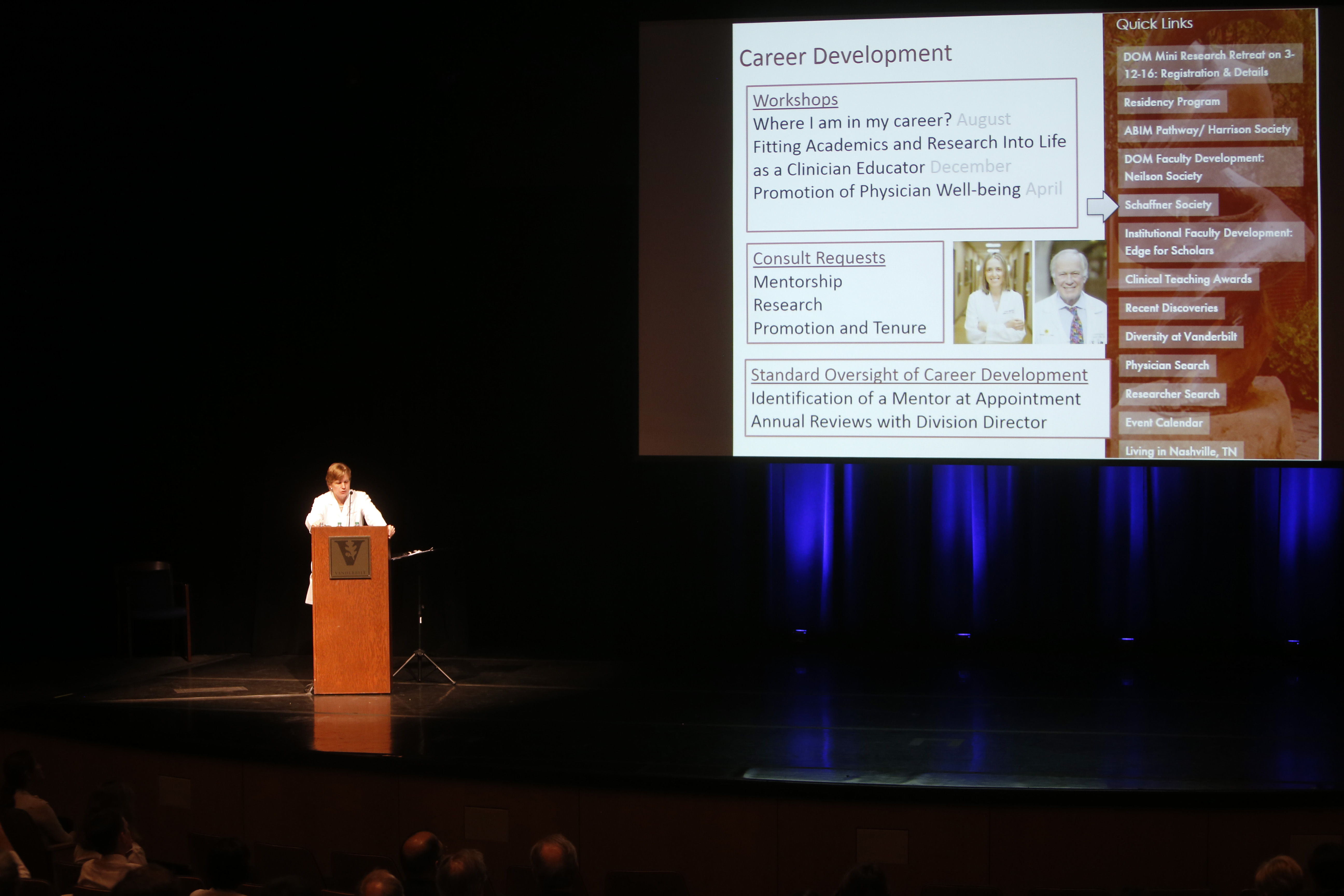
Chair of Medicine shares good news – and a story
Nancy J. Brown, M.D., chair and physician-in-chief of the Department of Medicine in the Vanderbilt University School of Medicine, shared a bumper crop of good news in her annual State of the Department address last week. Read MoreJun 15, 2017
-

VUMC lands renewal of Clinical and Translational Science Award
Vanderbilt University Medical Center (VUMC) has competed successfully for a second renewal of its Clinical and Translational Science Award (CTSA) by the National Institutes of Health (NIH). Read MoreJun 8, 2017
-
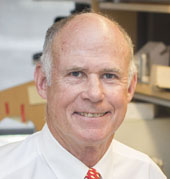
Coffey lands major NCI award to support colorectal cancer research
Vanderbilt’s Robert Coffey Jr., M.D., has received an Outstanding Investigator Award from the National Cancer Institute (NCI) — more than $6.6 million over seven years — to support studies aimed at advancing the diagnosis and treatment of colorectal cancer (CRC), a leading cancer killer. Read MoreJun 8, 2017
-
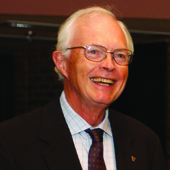
American Diabetes Association honors Granner’s achievements
Daryl Granner, M.D., professor of Molecular Physiology and Biophysics, emeritus, at Vanderbilt, has been recognized for outstanding achievements in diabetes research and training by the American Diabetes Association. Read MoreJun 1, 2017
-
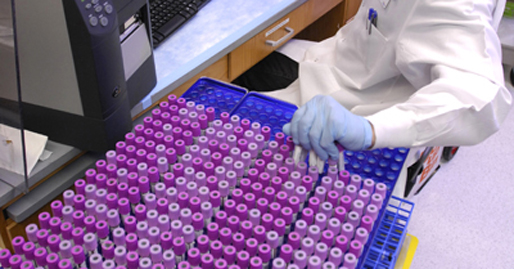
Forum highlights innovative approaches to bolstering biomedical research
How can we — together — make research at Vanderbilt University Medical Center (VUMC) better and stronger? Read MoreJun 1, 2017